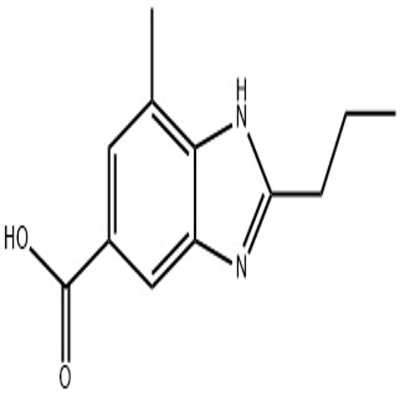-
Categories
-
Pharmaceutical Intermediates
-
Active Pharmaceutical Ingredients
-
Food Additives
- Industrial Coatings
- Agrochemicals
- Dyes and Pigments
- Surfactant
- Flavors and Fragrances
- Chemical Reagents
- Catalyst and Auxiliary
- Natural Products
- Inorganic Chemistry
-
Organic Chemistry
-
Biochemical Engineering
- Analytical Chemistry
-
Cosmetic Ingredient
- Water Treatment Chemical
-
Pharmaceutical Intermediates
Promotion
ECHEMI Mall
Wholesale
Weekly Price
Exhibition
News
-
Trade Service
2-(4-Bromophenyl)-6-iodoimidazo(1,2-a)pyridine (BPIIP) is an organic compound with a unique structure and diverse chemical properties.
Due to its favourable physical and chemical properties, BPIIP has found applications in various areas of the chemical industry.
One of the most significant applications of BPIIP is in the field of electrochemistry.
The compound is used as a mediator in electrochemical reactions, such as the detection of glucose in diabetic patients.
BPIIP can also be used as a redox mediator in biofuel cells, which convert chemical energy into electrical energy.
Another application of BPIIP is in the field of pharmaceuticals.
The compound has shown promising results in the treatment of Alzheimer's disease and other neurodegenerative disorders.
BPIIP has been found to have neuroprotective effects and can reduce the formation of amyloid plaques, a hallmark of Alzheimer's disease.
BPIIP is also used in the field of materials science.
The compound has been used to synthesize metal-organic frameworks (MOFs), which are porous materials with unique structural and magnetic properties.
MOFs have a wide range of applications, including gas storage, catalysis, and sensing.
In the field of supramolecular chemistry, BPIIP has been used to form host-guest complexes with various organic and inorganic guests.
These complexes have shown promising results in the areas of catalysis, sensing, and imaging.
BPIIP has also found applications in the field of nanotechnology.
The compound can be used to synthesize nanoparticles, which have unique optical, electronic, and mechanical properties.
These nanoparticles have applications in areas such as optoelectronics, photovoltaics, and biomedical imaging.
In addition to these applications, BPIIP has also been used in the field of bioconjugation.
The compound can be conjugated with biomolecules such as antibodies, nucleic acids, and enzymes to form biosensors, which can be used to detect and measure various biological molecules with high sensitivity and specificity.
BPIIP has also been used in the field of catalysis.
The compound can be used as a catalyst in various chemical reactions, including electrophilic substitution reactions, oxidation reactions, and reduction reactions.
BPIIP-based catalysts have shown promising results in the production of chemicals such as phenol, acetone, and cyclohexane.
Despite its many applications, BPIIP also has some limitations.
The compound is sensitive to moisture and air, which can lead to degradation and reduced stability.
In addition, BPIIP can be expensive to synthesize, which can limit its widespread use.
In conclusion, 2-(4-Bromophenyl)-6-iodoimidazo(1,2-a)pyridine (BPIIP) is an important compound with a wide range of applications in the chemical industry.
Its unique structure and chemical properties make it a valuable tool in electrochemistry, pharmaceuticals, materials science, supramolecular chemistry, nanotechnology, and bioconjugation.
While it has many promising applications, further research is needed to address its limitations and improve its stability and affordability.





![benzyl N-{2-[4-(4,4,5,5-tetramethyl-1,3,2-dioxaborolan-2-yl)phenyl]ethyl}carbamate](https://file.echemi.com/fileManage/upload/goodpicture/20210823/m20210823171124543.jpg)

